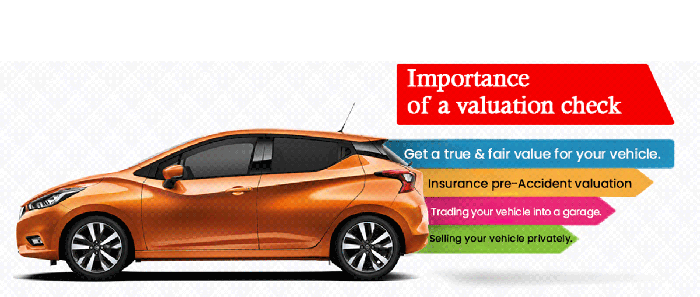How to get a car valuation in Ireland

In the Irish used car market, whether you’re buying or selling, accurately valuing a vehicle is an important first step. With market conditions constantly changing, understanding the key factors that affect a car's value is essential.
Here are some of the key points to consider when trying to put a value on a used car.
Research the Used Car Market
Take some time to get a feel for what’s already for sale and how much it’s advertised for. Pay attention to factors like current supply and demand, prevailing trends, and economic indicators that may affect the market and the automotive industry in general. Popular classifieds ads websites such as DoneDeal, Carzone, and AutoTrader are excellent sources for gathering market data and comparing prices of similar vehicles.
Make use of the online search filters to look for cars of the same make and model, and of similar year and trim level to the one you are trying to value. It won’t take long to establish an average asking price for your car. An iCap Valuation is also a useful and inexpensive way to accurately value any car in the Irish used car market and is based on the most up-to-date market conditions which is exclusive to MyVehicle.ie only.
Consider the Cars Age and Mileage
Undoubtedly, the most important factors to take into account are the age and mileage of the car. Generally, the older a car is, and the more mileage it has covered, the lower its overall value. Compare the mileage with the average for similar vehicles to determine its impact on the price. Used car buyers almost always favour lower mileage cars, resulting in a higher asking price for cars with less distance travelled.
Think About the Make, Model, and Trim Level
Certain brands and models tend to hold their value better than others in the used car market. Consider the popularity and reputation of the particular car brand and model. Additionally, the specific trim level and optional features in the car can affect its value, albeit sometimes, only marginally. Consult a motor trade professional if possible or seek advice from a local dealership to gauge the effect of these factors on pricing.
Consider the Overall Vehicle Condition
Take an honest look at the general condition; both inside and out, of the car you are trying to value. Look at the exterior for paint scratches, dents or corrosion, in the bodywork and bumpers. Look at the interior for overall cleanliness, wear and tear on the upholstery, and functionality of features such as the electric windows, sunroof and air conditioning. Assess the overall mechanical condition of the car and how it feels to drive. Consider the extent of the service history, and any recent repairs or modifications. Get a feel for how much ‘works’ and the likely cost of any necessary repairs, which may affect the value.
Check the Documentation and History
Examine the car's documentation, including the logbook, service history, and any relevant service receipts. A comprehensive service history with regular maintenance and repairs performed by reputable workshops can greatly enhance a vehicle's value and a A car with fewer registered owners is preferable to one which has changed hands more frequently. Purchase a Car History Check to ensure it has no outstanding finance, the mileage is correct, and there is no record of accident damage.
Check the NCT certificate is current and consider how recently the car was tested. A car without a valid NCT is worth considerably less than a recently tested car with a clean bill of health.
Consider the Cars Location
Consider the location of the car you are buying or selling when arriving at a value. Urban areas and bigger cities tend to have higher demand and prices, due to the population density. In contrast, rural areas might have lower demand, particularly remote or hard to reach areas, resulting in lower valuations. The location can also affect the cars condition in terms of exposure to harsh weather conditions or poorly maintained roads.
Get a Professional Inspection
Finally, if you are buying a used car, consider hiring a professional mechanic or an automotive engineer to perform a thorough inspection of the vehicle. They can provide an unbiased assessment of the car's condition, identify hidden issues, and estimate the cost of any necessary repairs. An On-site car inspection can be a worthwhile investment to accurately assess the condition of the car, particularly if you are inexperienced in carrying out the necessary checks yourself.
Accurately valuing a used car in the ever-changing market requires a little time and patience. However, this small investment of time at an early stage will pay dividends in making sure you get the best deal possible, whether you’re buying or selling a used car.
Author

Justin Kavanagh
Justin Kavanagh is a recognised leader
in automotive intelligence and vehicle
data supply to the entire motor industry.
He has almost 20 years experience in
building systems from the ground up.
As the Managing Director of Vehicle
Management System, he understands the
need and importance of trustworthy and
reliable vehicle history and advice to
both the trade and the public.
Follow me on LinkedIn